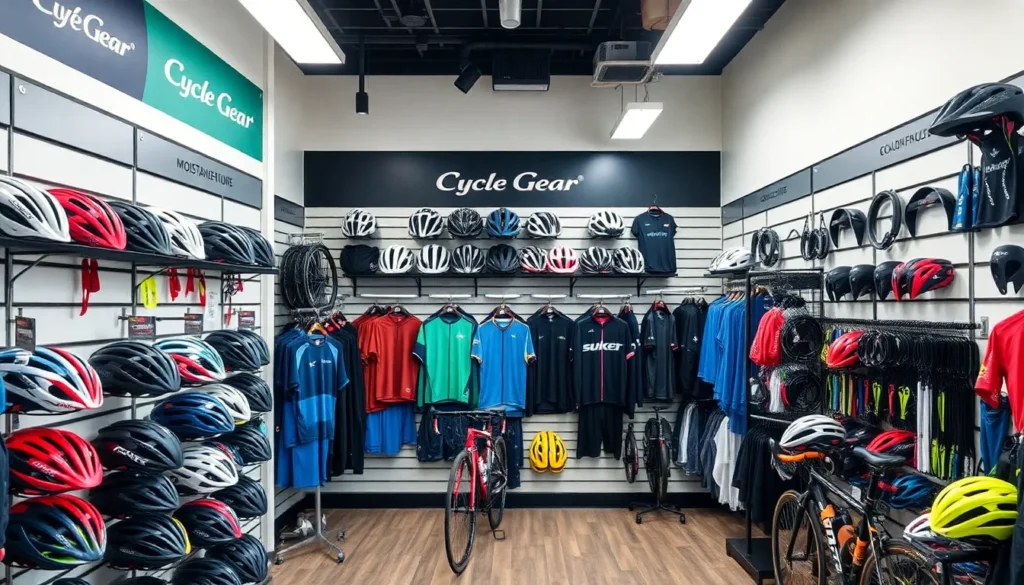Job interviews can be nerve-wracking experiences, but they’re also opportunities to showcase skills and personality. With the right preparation, candidates can turn a daunting situation into a chance for success. Understanding what employers seek and how to present oneself effectively can make all the difference.
From researching the company to mastering common interview questions, each step plays a crucial role in building confidence. This article offers essential job interview tips that not only prepare candidates for potential questions but also help them make a lasting impression. With these insights, anyone can step into an interview room ready to shine.
Table of Contents
ToggleUnderstanding Job Interviews
Job interviews serve as a critical platform for candidates to demonstrate their qualifications and for employers to assess potential hires. Knowing the various types and formats of job interviews equips candidates with essential strategies for success.
Types of Job Interviews
- One-on-One Interviews: A traditional format where a single interviewer engages with the candidate, focusing on skills, experiences, and fit for the role.
- Panel Interviews: A group of interviewers, often from different departments, evaluates the candidate simultaneously, providing diverse perspectives.
- Group Interviews: Multiple candidates are interviewed together, assessing interpersonal skills and teamwork abilities in a competitive setting.
- Telephone Interviews: Conducted over the phone, these interviews often serve as preliminary screenings, allowing recruiters to gauge interest and qualifications.
- Video Interviews: Utilizing platforms like Zoom or Skype, these remote interviews mirror in-person formats, expanding flexibility and reach for candidates.
Common Interview Formats
- Behavioral Interviews: Focus on past experiences where candidates provide specific examples, highlighting problem-solving and adaptability through the STAR method (Situation, Task, Action, Result).
- Technical Interviews: Common in fields like IT and engineering, these interviews assess specialized knowledge and skills relevant to the position through problem-solving exercises or case studies.
- Situational Interviews: Candidates answer hypothetical questions related to job tasks, allowing employers to evaluate decision-making and critical thinking abilities.
- Case Interviews: Primarily used in consulting roles, candidates analyze business scenarios, demonstrating analytical skills and structured thinking.
- Competency-Based Interviews: Assess candidates against a set of required competencies or skills specific to the job, allowing interviewers to determine alignment with job demands.
Preparing for the Interview

Preparation is crucial for successful job interviews. Candidates can alleviate nerves and effectively showcase their skills by following key steps.
Researching the Company
Candidates should gather detailed information about the company. This includes its mission, values, culture, and recent news. Reviewing the company’s website, social media pages, and press releases provides valuable insights. Understanding the industry trends and competitors can help candidates articulate how they’d contribute to the company’s success. Additionally, candidates can identify potential questions to ask during the interview, demonstrating genuine interest in the organization.
Practicing Common Questions
Candidates benefit from rehearsing answers to common interview questions. They should prepare for questions about strengths, weaknesses, and career goals. Practicing behavioral questions enhances readiness; for example, using the STAR method (Situation, Task, Action, Result) enables candidates to detail their past experiences effectively. Furthermore, mock interviews with a friend or mentor can build confidence and improve delivery. Recording responses for self-evaluation helps identify areas for improvement, ensuring candidates present themselves articulately during the actual interview.
Dressing for Success
Dressing appropriately for a job interview significantly influences a candidate’s first impression. Attire reflects professionalism and can enhance confidence during the interview process.
Choosing Appropriate Attire
Choosing the right attire is essential for presenting a professional image. Candidates should opt for clothes that fit well and are in good condition. For most job interviews, business formal attire works best, including options like tailored suits, dress shirts, blouses, and polished shoes. Women should consider wearing dresses or skirts that fall at the knee or longer. Men should ensure their attire includes a blazer or jacket. Matching colors, such as navy, black, or gray, project a serious demeanor, while lighter shades can convey approachability.
Understanding Dress Codes
Understanding dress codes can help candidates align their appearance with company culture. Many organizations communicate their dress expectations in the job posting or during the interview scheduling. Recognize the following common dress codes:
- Business Formal: This includes suits and ties for men and tailored suits or dresses for women. Industries like finance and law typically adhere to this standard.
- Business Casual: Slacks or khakis with collared shirts for men and blouses or simple dresses for women suit this relaxed setting. Tech companies often embrace this style.
- Casual: Simple but neat attire like jeans paired with a polo or casual dress. Startups or creative industries might opt for this relaxed look.
Understanding these codes enables candidates to make informed choices about their attire, positively impacting their interview experience.
Effective Communication
Effective communication during job interviews is essential to conveying qualifications and making a positive impression. Both body language and verbal skills play pivotal roles in this process.
Body Language Tips
Maintain an open posture to project confidence. Sit up straight and lean slightly forward to show engagement. Use purposeful gestures to emphasize points, but avoid excessive movement. Make eye contact to establish trust and connection, shifting gaze naturally without staring. Smile genuinely to convey friendliness and approachability. Additionally, nodding occasionally indicates understanding and interest in the conversation.
Verbal Communication Skills
Articulate responses clearly and at a moderate pace. Use proper grammar and avoid jargon unless directly relevant to the position. Present information concisely; focus on key achievements and relevant experiences. Tailor language to the audience, integrating industry-specific terminology only where appropriate. Ask clarifying questions when necessary, demonstrating active listening skills. Lastly, practice responses aloud to enhance fluency and reduce filler words, ensuring a polished delivery during the interview.
Following Up After the Interview
Following up after an interview is crucial for reinforcing interest in the position and leaving a positive impression. This step demonstrates professionalism and gratitude, enhancing the candidate’s chance of moving forward in the hiring process.
Crafting a Thank-You Note
Crafting a thank-you note is an essential follow-up step. Candidates should send this note within 24 hours of the interview. Phrasing must reflect appreciation for the interviewer’s time and insights. Including specific details discussed during the interview strengthens the message and highlights key qualifications.
A quick checklist for the thank-you note:
- Express gratitude for the interviewer’s time.
- Mention key points from the discussion.
- Reiterate interest in the position briefly.
- Include contact information for future communication.
Keeping Communication Open
Keeping communication open after the interview allows candidates to maintain a connection with potential employers. Sending a follow-up email one week after the interview can serve as a gentle reminder of interest in the role.
In the follow-up email:
- Inquire about the status of the hiring process.
- Restate enthusiasm for the opportunity.
- Remain concise and professional.
These tactics ensure candidates stay on the interviewer’s radar, reflecting persistence and enthusiasm for the role.
Navigating job interviews can be daunting but with the right preparation candidates can significantly boost their chances of success. Understanding the various interview formats and tailoring responses to showcase relevant skills is key. Dressing appropriately and communicating effectively, both verbally and non-verbally, plays a crucial role in making a positive first impression.
Following up after the interview demonstrates professionalism and reinforces genuine interest in the position. By implementing these strategies candidates can approach their interviews with confidence and clarity, ultimately paving the way for career advancement and opportunities.





